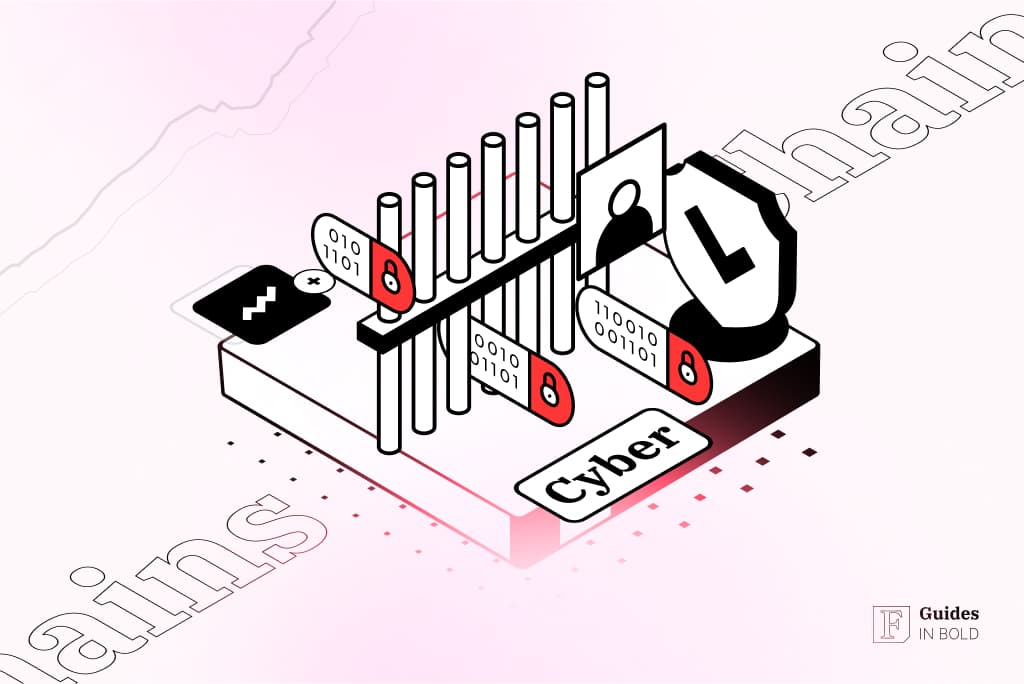In todays changing landscape ensuring cybersecurity has become a top priority for individuals, corporations and governments alike. With the emergence of cyber threats it has become necessary to adopt advanced and secure technologies. This is where blockchain technology comes into play. A groundbreaking framework that has the potential to revolutionize the field of cybersecurity. While it is primarily recognized as the underlying technology behind cryptocurrencies like Bitcoin it offers more by providing an unchangeable ledger system with unprecedented security features that are now being applied across various industries.
The Foundation of Enhanced Security with Blockchain
At its core, blockchain technology is built on principles such as decentralization, transparency, and immutability. Unlike databases managed by a single entity, blockchain distributes data across a network of computers. This distributed approach makes it incredibly difficult for hackers to compromise the integrity of the data. Each block in the chain contains transactions that are encrypted and linked to the previous block upon completion, forming an unbreakable chain. By employing this structure, any recorded data becomes tamper-proof without consensus from the network. Consequently, this provides a layer of security against fraudulent activities and cyberattacks.
This makes blockchain an appealing option when considering layers of security for organizational use. Guardio, a tool that focuses on safety, offers plans to enhance security. For those interested in learning about the tool, including how much does Guardio cost, information is readily available. They even offer a free account option that provides essential functions.
The Impact of Blockchain on Cybersecurity
Blockchain technology extends far beyond its initial cryptocurrency applications, offering significant enhancements to cybersecurity across various domains. Let’s explore how blockchain is revolutionizing security measures:
Maintaining Data Integrity and Confidentiality
Blockchains unique features ensure the integrity and confidentiality of data. By encrypting and distributing data across the network it becomes more difficult for access or tampering to occur. This is particularly beneficial for protecting infrastructure and sensitive information where data integrity is crucial.
Enabling Secure Transactions
Blockchain provides an environment for conducting transactions while maintaining transparency. Each transaction undergoes verification by the network reducing the risk of activities. This is especially relevant in services, supply chain management and other sectors where secure and transparent transactions are essential.
Decentralized Identity Verification
Conventional methods of identity verification pose security risks such as data breaches or identity theft. However blockchain introduces an approach to identity verification that mitigates these risks.
Blockchain provides a solution for identity verification allowing users to have control over their information and securely share it. This reduces the reliance on centralized entities that are susceptible to attacks.
Improved Security for Internet of Things (IoT)
The Internet of Things (IoT) is rapidly expanding, connecting a growing number of devices. However this expansion also brings vulnerabilities in terms of security. Blockchain can enhance security in networks by ensuring tamper proof communication between devices. This decentralized approach significantly lowers the risk of large scale breaches that’re common in systems.
Challenges and Future Developments
Despite its benefits the adoption of technology in cybersecurity faces certain challenges. These include addressing scalability issues, managing energy consumption associated with implementations and establishing regulatory frameworks that account for the unique characteristics of decentralized technologies. Additionally as blockchain technology evolves cybercriminals will also adapt their tactics, necessitating innovation and adaptation in cybersecurity strategies.
The future prospects for integrating blockchain into cybersecurity appear promising with continued research and development efforts focused on overcoming limitations. As blockchain technology matures and becomes more accessible its integration into cybersecurity frameworks is expected to grow ultimately offering a resilient digital world.
Conclusion
Blockchain technology represents a shift in how we approach cybersecurity.The decentralized, transparent and unchangeable characteristics of blockchain provide a solution to address the security obstacles encountered in today’s era. Although there are challenges to overcome it is undeniable that blockchain has the potential to enhance data integrity, transaction security, identity verification and IoT security. As we progress ahead, incorporating blockchain into cybersecurity initiatives will play a role in combating the changing landscape of cyber threats and creating a safer digital future.

